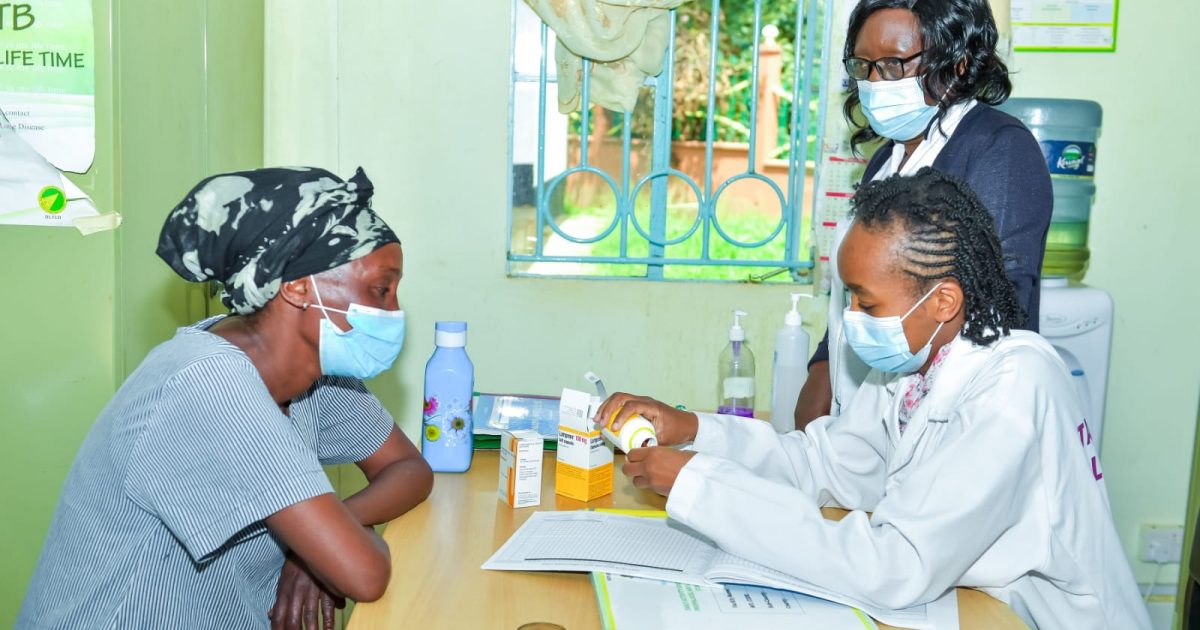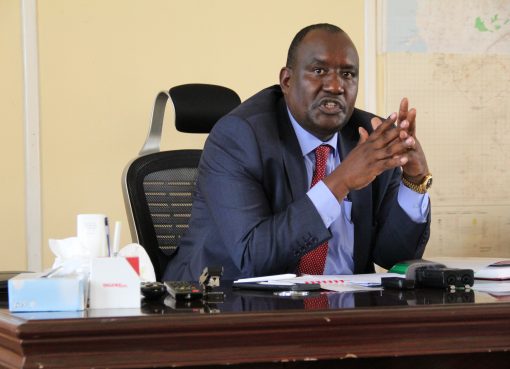Kirinyaga County Government has enhanced TB management services as more cases get diagnosed following acquisition of advanced testing equipment.
With the modern TB testing equipment, the county is now able to carry out rapid testing for patients who present with symptoms that could indicate the presence of the disease.
The county government has equipped Kerugoya County Referral Hospital, Kimbimbi, Sagana and Thiba Hospitals with GeneXpert testing machines that are able to give accurate and TB and Multidrug resistant TB results promptly.

The county has also put up a 24-bed TB isolation center at Kerugoya hospital which enables the monitoring and treatment of patients who require admission.
Governor Anne Waiguru said that the establishment of a TB isolation facility as well as the improvement of TB management services in the county is in line with the county’s goals of provision of quality healthcare services to the county residents through continuous improvement of health facilities.
Her administration has been undertaking an expansion of infrastructure and equipping of health facilities across the county.
“In the past, many cases of TB went undiagnosed due to lack of adequate equipment as well as the unwillingness of patients to undertake the testing. If left untreated, TB which is a communicable disease can lead to death. We have improved our TB management services through the establishment of an isolation facility and acquisition of advanced testing equipment,” Waiguru said.
The Public Health Act CAP 242, section 17 classifies TB as a notifiable infectious disease. The act states that those suffering from the notifiable infectious diseases should be isolated in a designated place while taking the medication until the assessment by a Medical Officer of Health ascertains that the person can be discharged without endangering public health.
Franklin Mwenda, the county’s head of TB, Leprosy and Lung disease program said the county currently has 1,245 active cases of TB under treatment, with 18 of them being treated for MultiDrug Resistant (MDR) TB.
He said that the county has so far attained 86% TB treatment success rate against the 92% treatment rate set by the National Government.
“Our ability to test has increased our case finding and treatment thus our call to the public to visit our hospitals for proper diagnosis and treatment,” said the officer, adding that testing, treatment and all drugs are offered for free.
He emphasized on the importance of adhering to TB medication, failure to which the disease could progress to Multi Drug Resistant TB which is very costly to treat and can cost the patient’s life. It takes between six and 20 months to treat TB, with the Multidrug resistant one taking longer to treat.
The official observed that around 7% of TB patients die because of late diagnosis which denies a patient the opportunity of being treated at the appropriate time.
Once a patient is diagnosed with TB, they are immediately put on treatment and depending on the severity of the illness, they can either be admitted in the hospital or take drugs at home where the local community health volunteer monitors them.
Mwenda said that one of the setbacks in TB management is late detection and failure by patients to adhere to the prescribed treatment plan. If one is found to have stopped taking the medication as required, they may have to be put on compulsory admission until they finish their medication.
“Many of the TB patients will have been misdiagnosed and treated for common colds and flus four to seven times before they can correctly be diagnosed for TB.” He said, noting that some hospitals will prescribe without carrying out TB tests while other patients will get over the counter medication without proper diagnosis.
Another setback against successful treatment is malnutrition among patients where lack of adequate food supplies force them to abandon their treatment plan. Drug and alcohol consumption also contributes to patients inconsistently taking their medication.
The officer said that apart from treatment, the county has an active TB prevention program that involves educating about the disease as well as observing infection prevention and control protocols in all the health facilities.
“Health workers and the general public are also expected to observe the laid down infection prevention and control guidelines such as proper cough etiquettes, staying in well ventilated spaces and wearing a mask when necessary”, he said.
While anyone who comes across the TB virus can contract the disease, those living together or taking care of TB patients have a high risk of contracting the disease. He also said that people living with HIV and are not taking their medication correctly are also highly likely to contract TB due to frequent visits to hospitals for treatment of other opportunistic diseases.
Susan Nyawira is one of the patients who have been receiving treatment for TB at Kerugoya County Referral Hospital. She says that she has received great care at the hospital and has now recovered though she still has to complete the full dosage of her medication before being discharged.
“When I came to this hospital my health had deteriorated so much that I was weighing 32 kilograms. I was put on medication and I have been feeding well at the hospital and now I weigh 58 kilograms. I feel so happy to have recovered and I look forward to the day I will be released to go and join my family,” said the mother of one who hails from Mwea.
She said that she will not hesitate to educate the public on the importance of getting tested for TB whenever they have any of the symptoms and urges anyone who has tested positive to ensure that they have taken their medication as prescribed.
People who seek treatment in good time and complete the treatment plan are able to resume normal productive life afterwards. Peter Muthii who is a bodaboda rider in Kerugoya town does not shy away from telling people that TB is curable. Having suffered from the disease and getting treated, he is now able to carry on his normal routine.
He says that one of the biggest challenges in TB management is inconsistency in taking medication which he said was common among alcoholics as well as people who cannot afford proper diet.
Muthii however says it is better to sacrifice alcohol than sacrifice one’s life for not taking medication correctly. He thanked the county government for ensuring that TB patients get the required support.
Some of the symptoms that should prompt one to undertake a TB test include a cough, fatigue, chills, fever, sweating at night or unexplained weight loss. Someone who has had contact with a TB patient is advised to get tested.
By Irungu Mwangi



